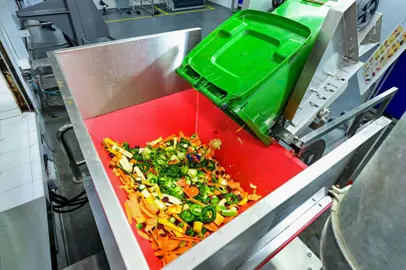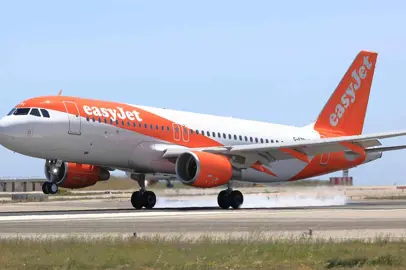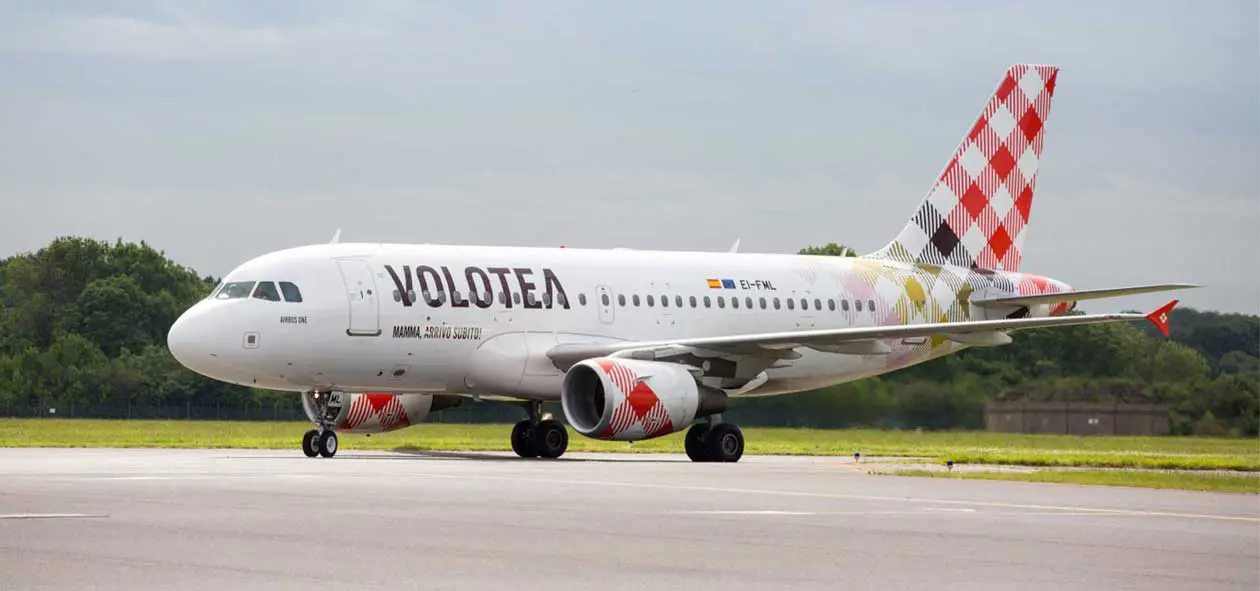24 October 2024
Volotea optimizes fuel consumption with Airbus
Airline boosts fleet performance to improve flight energy efficiency, reduce fuel consumption and decrease carbon emissions
Volotea, the airline that connects small and medium-sized European cities, has signed a major agreement with Airbus for the adoption of the Descent Profile Optimization (DPO) system across its entire fleet of Airbus A319 and A320 aircraft, consisting of 44 aircraft. This technological innovation, introduced during the MRO Europe trade fair in Barcelona, was developed to improve the energy efficiency of flights, reduce fuel consumption and decrease carbon emissions. The initiative also includes the use of the Skywise platform, which allows predictive maintenance to be carried out, improving the reliability and performance of aircraft.

Eduard Diviu, Chief Operating Officer of Volotea, and Delphine Gianoglio, Head of Airbus Commercial Services Europe
Eduard Diviu, Chief Operating Officer of Volotea, pointed out that the integration of DPO has already contributed significantly to the reduction of CO2 emissions, with savings of around 958 tonnes since the start of implementation in 2019. Volotea expects to save more than 2,000 tons of CO2 by 2030, five years ahead of its original goal of reducing emissions per passenger-kilometer by 50% by 2030, as confirmed by Bureau Veritas.
Delphine Gianoglio, Head of Airbus Commercial Services Europe, said Airbus supports Volotea in achieving its decarbonisation goals, highlighting the importance of collaboration between the two companies to reduce the environmental impact of aviation. The DPO system has been progressively installed on all aircraft in the Volotea fleet, with the aim of equipping new aircraft with this cutting-edge technology as well.
In addition to the DPO, Volotea has started implementing Skywise Predictive Maintenance + (S.PM+), which allows you to monitor aircraft sensor data to predict failures and improve operational reliability. This system helps the airline prevent technical issues by reducing maintenance costs and ensuring higher aircraft availability, while improving the passenger travel experience through more reliable scheduling.
Thanks to the strong partnership with Airbus, Volotea benefits from a full range of advanced services that support the growth of its fleet, ensuring high standards of safety and sustainability. This strategic collaboration represents a further step towards the adoption of innovative and sustainable solutions in the aviation industry.
By the Editorial Board of Avion Tourism Magazine
Text source and photo: © Volotea Press Office
Photo: Copyright © Volotea.
Advertising
Flights
Partnership with Booking.com
Hotel
You might be interested in
Sustainability

Sustainable Mobility
On board with less waste: Emirates catering becomes more sustainable
In Dubai, one of the world's largest biodigesters reduces waste and CO₂, improving the environmental impact of meals served in flight
Sustainability

Sustainable Mobility
easyJet focuses on efficiency and sustainability
Sharklet on Airbus A320ceo by summer 2026 to reduce fuel consumption and emissions: the aircraft involved operate at major bases including Berlin, Lisbon, London Gatwick and Milan Malpensa
Sustainability

Sustainable Mobility
Emirates' sustainable amenity kits
New designs for pouches made from bio materials, illustrations of endangered species, and Aveda products in the new Premium Economy and Economy amenity kits for long-haul flights




